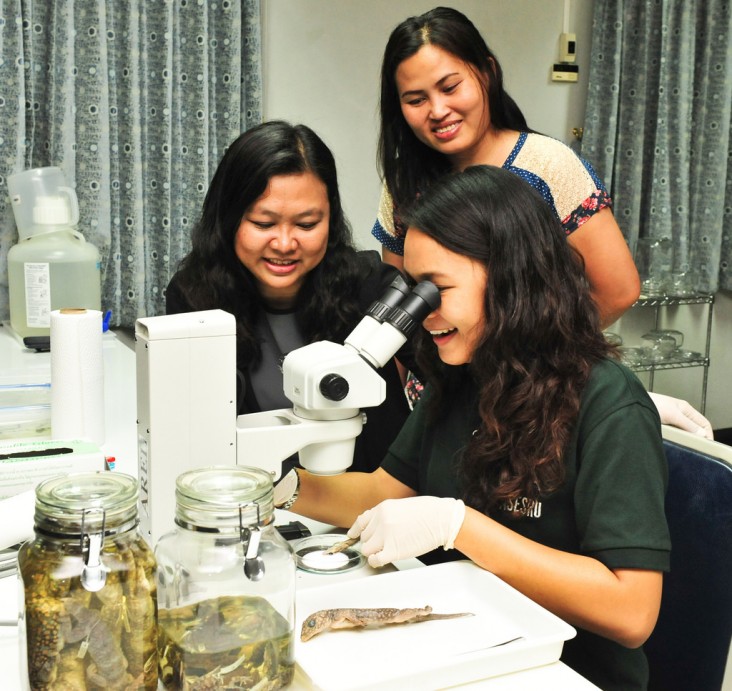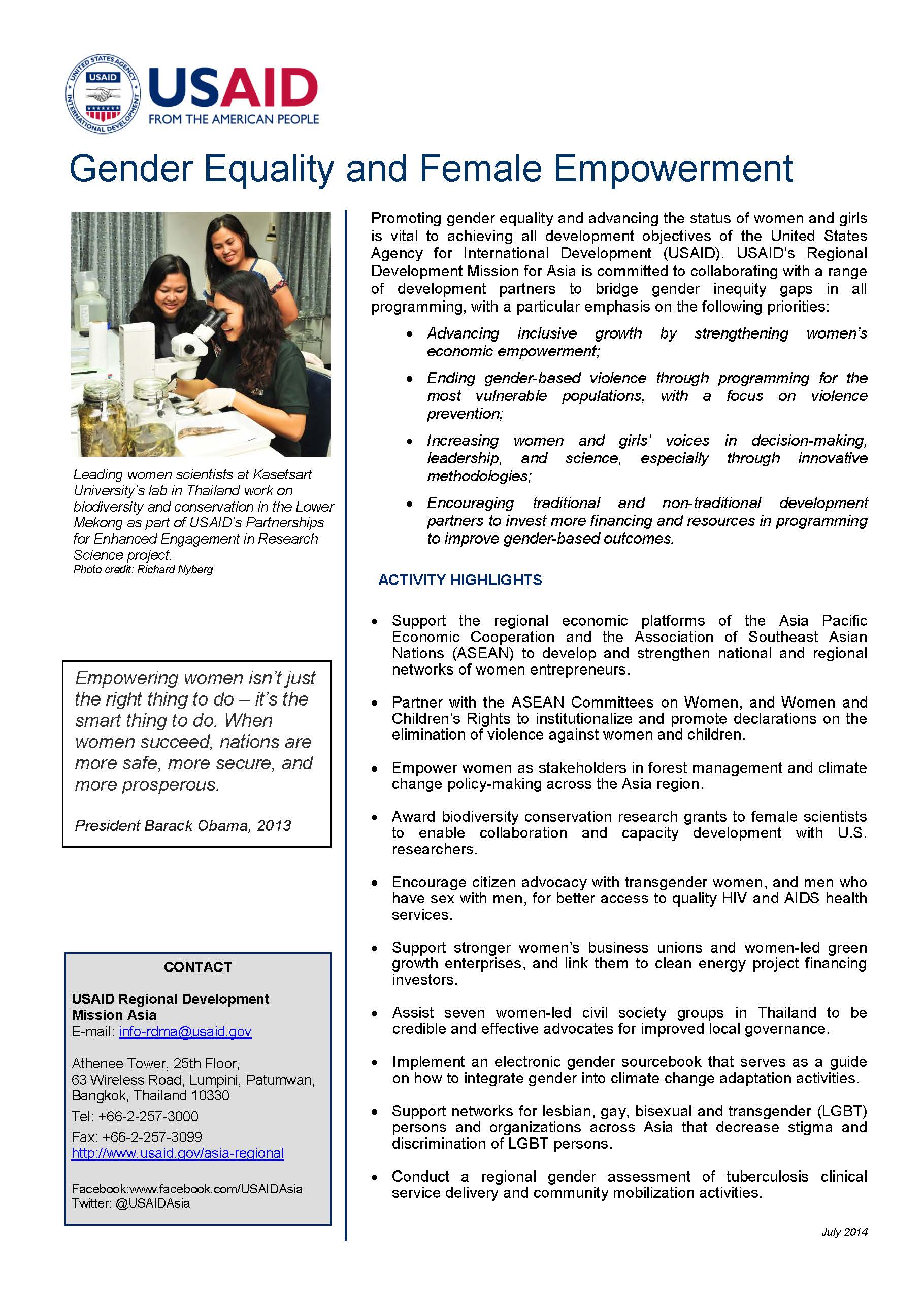
Leading women scientists at Kasetsart University’s lab in Thailand work on biodiversity and conservation in the Lower Mekong as part of USAID’s Partnerships for Enhanced Engagement in Research Science project.
Photo credit: Richard Nyberg
Promoting gender equality and advancing the status of women and girls is vital to achieving all development objectives of the United States Agency for International Development (USAID). USAID’s Regional Development Mission for Asia is committed to collaborating with a range of development partners to bridge gender inequity gaps in all programming, with a particular emphasis on the following priorities:
- Advancing inclusive growth by strengthening women’s economic empowerment;
- Ending gender-based violence through programming for the most vulnerable populations, with a focus on violence prevention;
- Increasing women and girls’ voices in decision-making, leadership, and science, especially through innovative methodologies;
- Encouraging traditional and non-traditional development partners to invest more financing and resources in programming to improve gender-based outcomes.
ACTIVITY HIGHLIGHTS
- Support the regional economic platforms of the Asia Pacific Economic Cooperation and the Association of Southeast Asian Nations (ASEAN) to develop and strengthen national and regional networks of women entrepreneurs.
- Partner with the ASEAN Committees on Women, and Women and Children’s Rights to institutionalize and promote declarations on the elimination of violence against women and children.
- Empower women as stakeholders in forest management and climate change policy-making across the Asia region.
- Award biodiversity conservation research grants to female scientists to enable collaboration and capacity development with U.S. researchers.
- Encourage citizen advocacy with transgender women, and men who have sex with men, for better access to quality HIV and AIDS health services.
- Support stronger women’s business unions and women-led green growth enterprises, and link them to clean energy project financing investors.
- Assist seven women-led civil society groups in Thailand to be credible and effective advocates for improved local governance.
- Implement an electronic gender sourcebook that serves as a guide on how to integrate gender into climate change adaptation activities.
- Support networks for lesbian, gay, bisexual and transgender (LGBT) persons and organizations across Asia that decrease stigma and discrimination of LGBT persons.
- Conduct a regional gender assessment of tuberculosis clinical service delivery and community mobilization activities.
Gender Equality and Female Empowerment ![]() (pdf - 232k)
(pdf - 232k)








Comment
Make a general inquiry or suggest an improvement.